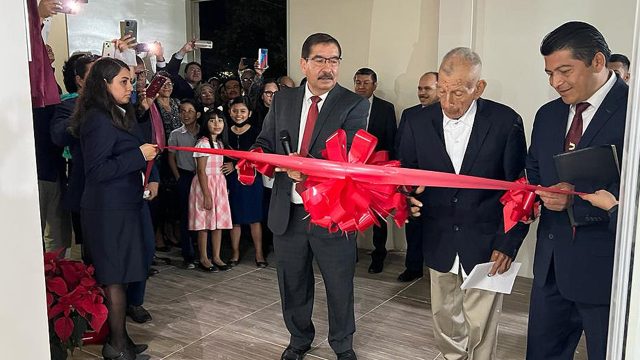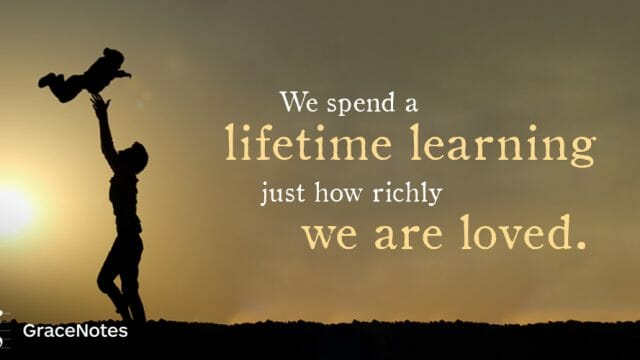I had not fully understood that God wants to be known.

“How do you see God, really?”
The question echoed in my heart, inspired by the opening statement of a book: “Imagine God is thinking about you. What do you assume God feels when you come to mind?”1
I squirmed as the author expanded on how our answer to that question reveals much about the nature of our spiritual journey and our knowledge of God. I had to admit, when I thought about God, I often pictured Him as disappointed in me. Distant. Uninterested. There was a gap between what I read about God and my real knowledge of Him.
I had not fully understood that God wants to be known. I had talked about a “personal relationship” with God, but there was a disconnect between my head and my heart. Yet this was something God kept raising, particularly as I went through a difficult period in my life. A relationship had just ended, I didn’t know what I was doing with my career, and my life generally felt like a mess. God began to speak to me, in many ways, of hope and restoration, but also of something deeper that He wanted to do during this time.
As I lay sobbing on my bedroom floor one evening, God drew my attention to a passage in Hosea. In it, God tells Israel that He can transform their valley of trouble into a gateway of hope. Then He says, “When that day comes, you will call me ‘my husband’ instead of ‘my master.’ . . . I will be faithful to you and make you mine, and you will finally know me…” (see Hosea 2:14-20 NLT).2
I could hear the longing of God’s heart in that. Through the metaphorical language of marriage, He offers His people the deepest, most committed intimacy possible.
After that night, the concept of knowing God kept appearing everywhere. God whispered to me through sermons, media, strangers. My church ran a series with Tim Jennings, a psychiatrist and author, on how our view of God literally shapes our brains and how that impacts our lives. At work, I interviewed a gospel artist who described God and His involvement in her life as if she were talking about a flesh-and-blood friend.
In each situation, God was calling to me. “It is possible to know Me deeply. I want this for you.”
To know God seems a simple idea, but I believe it lies at the heart of what being part of the remnant means.
Ellen White explains that God’s purpose for the church is essentially to know God as He truly is and to freely share what that means with the world.3 We are to be representatives of God, which means that we must know God, not merely intellectual truths.
David experienced the pull of God’s desire for relationship as he records in one of my new favourite verses: “My heart has heard you say, ‘Come and talk with Me.’ And my heart responds, ‘Lord, I am coming” (Ps. 27:8 NLT).
God is longing for us to know Him. How will we respond to His call to our heart?
Lynette Allcock, a graduate of Southern Adventist University, lives in Watford, United Kingdom, where she produces and presents for Adventist Radio London.
1 David G. Benner, Surrender to Love (Downers Grove, Ill.: IVP, 2015), p. 19.
2 Scripture quotations marked NLT are taken from the Holy Bible, New Living Translation, copyright ã _1996, 2004, 2007 by Tyndale House Foundation. Used by permission of Tyndale House Publishers, Inc., Carol Stream, Illinois 60188. All rights reserved.
3 See particularly the first chapter entitled “God’s Purpose for His Church,” in Ellen G. White, The Acts of the Apostles (Boise, Idaho: Pacific Press Publ. Assn., 1911), pp. 9-16.








